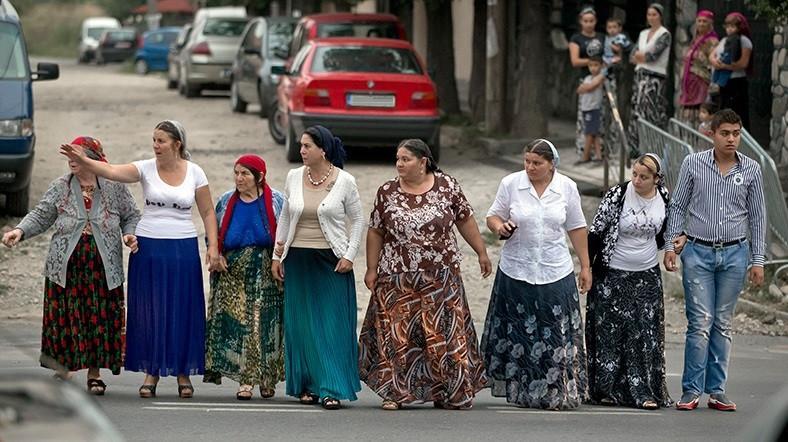Roma people want inclusion in Turkey’s improvement plan
ANKARA

The head of a rights group has said Roma people should be included more in the government’s plans, amid Turkey’s second phase of an action plan aimed to increase the living standards of the minority group.
“The role and function of Roma civil society organizations toward public institutions and municipalities are very important,” Yücel Tutal, the president of the Turkey-based Federation of Roma Rights, told state-run Anadolu Agency.
“However, government agencies do not cooperate very much,” he said.
“We expect them to get us more involved.”
In 2016, Turkey announced an action plan as part of the government’s Roma Initiative to enhance the living conditions of Roma people.
The action plan is expected to continue until 2021 and its second phase on education, health, employment, housing, and social services has been published in the Official Gazette on Wednesday.
As part of the Government Plan, the Family and Social Policies Ministry has conducted several projects since 2016 to improve the living standards of the Roma in Turkey.
Nearly 13,000 Roma received consultation in several provinces – including the provinces of Ankara, Adana, Balıkesir, Hatay, Edirne, Eskişehir, Istanbul, İzmir, Kırklareli, Manisa, Mersin, and Tekirdağ.
The ministry provided 2,005 Roma citizens vocational training, 1,083 basic literacy, 148 apprenticeship training, and 561 entrepreneurship training.
According to the European Commission, there was an estimated population of 10 to 12 million Roma in Europe in 2016.
Turkish officials estimate the number of Roma in Turkey at around 600,000, according to local media.
‘Roma still live in tents’
Tutal also highlighted the problems of Roma especially in the areas of education, employment and housing.
Pointing out Roma people who still live in tents, Tutal said that there were some problems with the school attendance and job placement of university graduates.
Tutal said that municipalities and public institutions were not aware of the action plan.
According to Tutal, the new action-plan is more detailed.
He urged the government to “turn the action plan into a state policy” instead of just leaving it as a written document.
“The primary problem of the Roma people is prejudice and discrimination and we cannot solve these problems without fighting against these issues,” he said.
“The problems of education, employment and housing should be solved at the same time without being separated,” he added.
According to Tutal, these intertwined problems are affecting one another when a child who needs to get an education does not have livable housing or their father does not have a job.
“If serious steps are taken at the implementation point of the second action plan and the relevant ministries and institutions and organizations are involved, Roma citizens will benefit more,” he said.
















